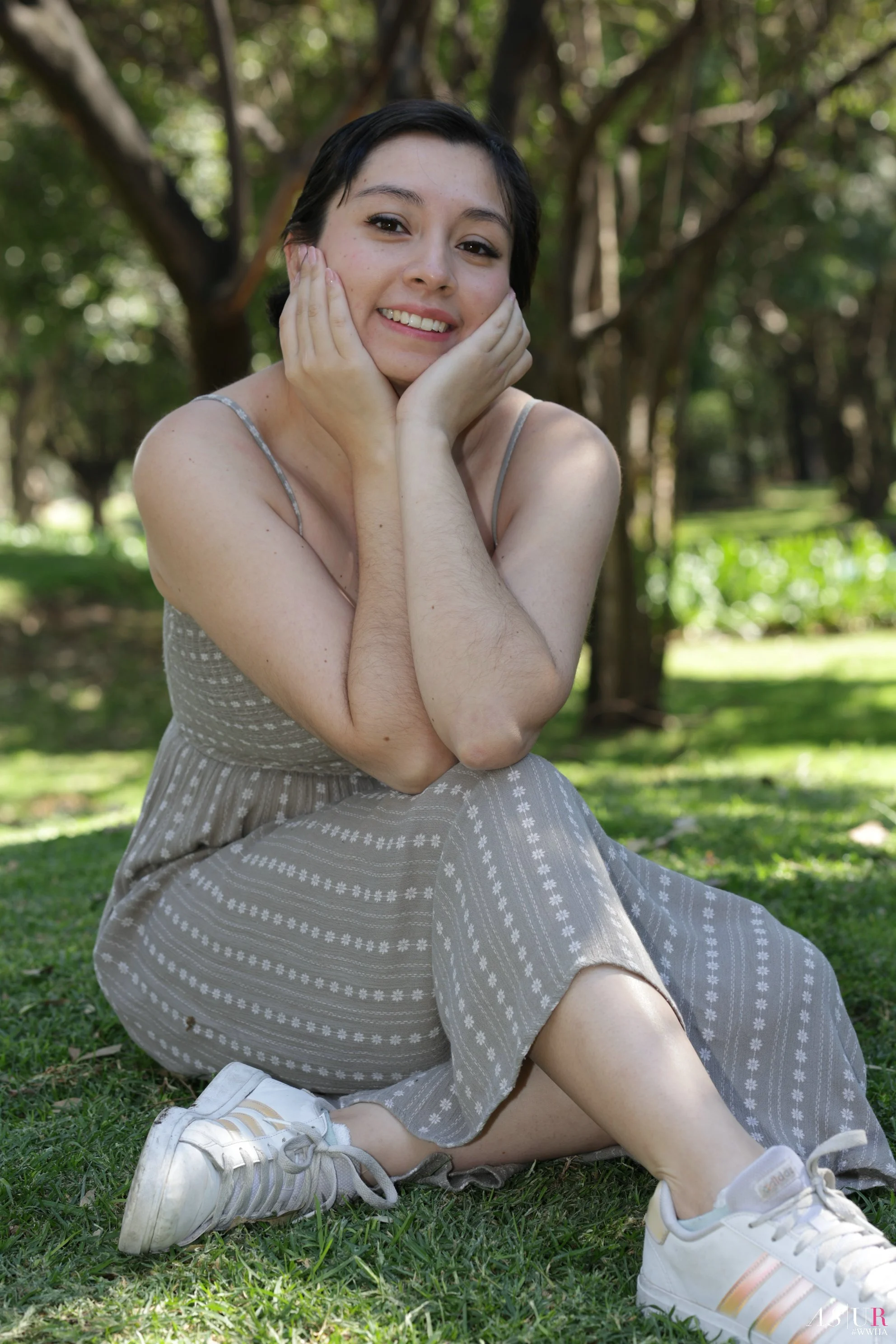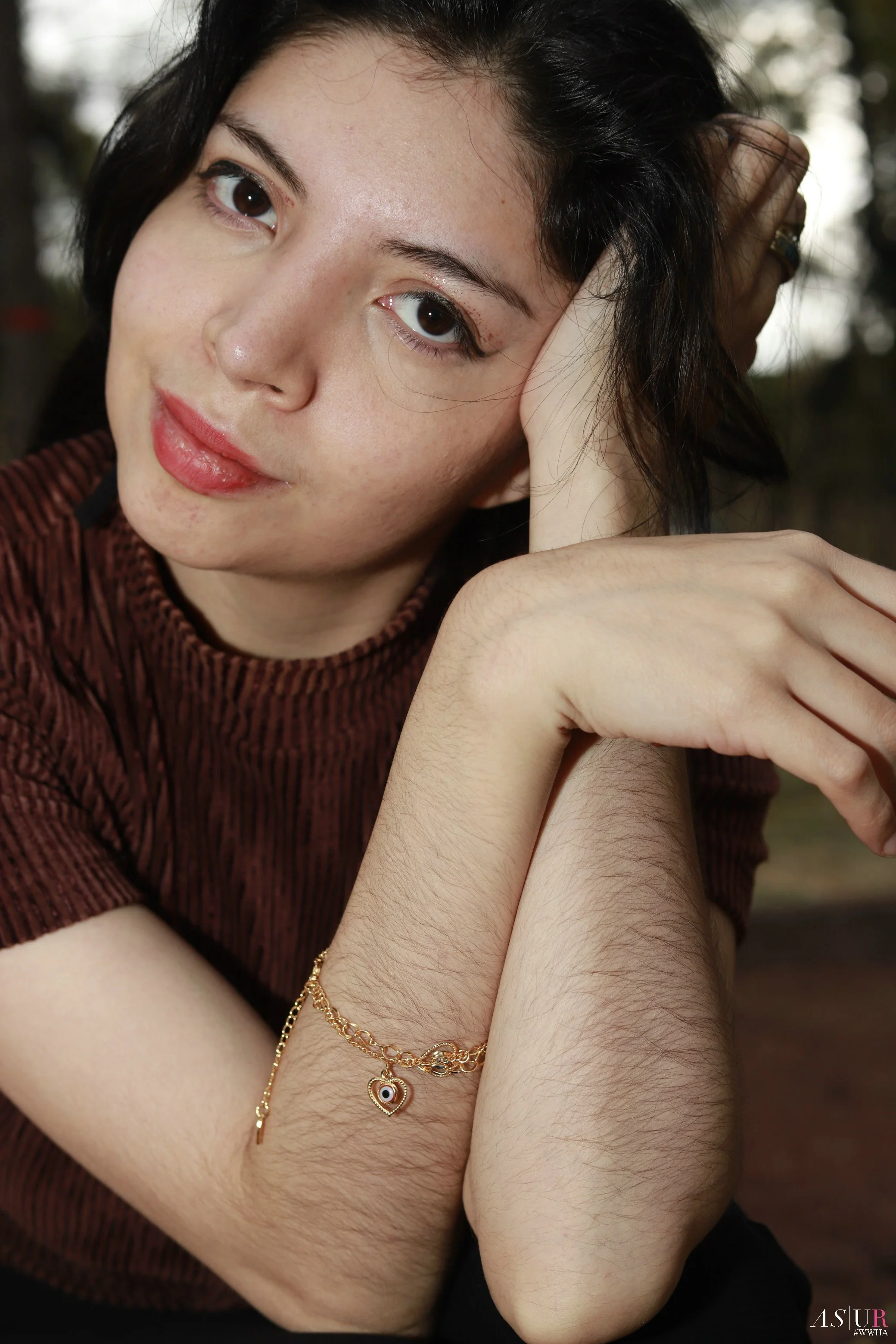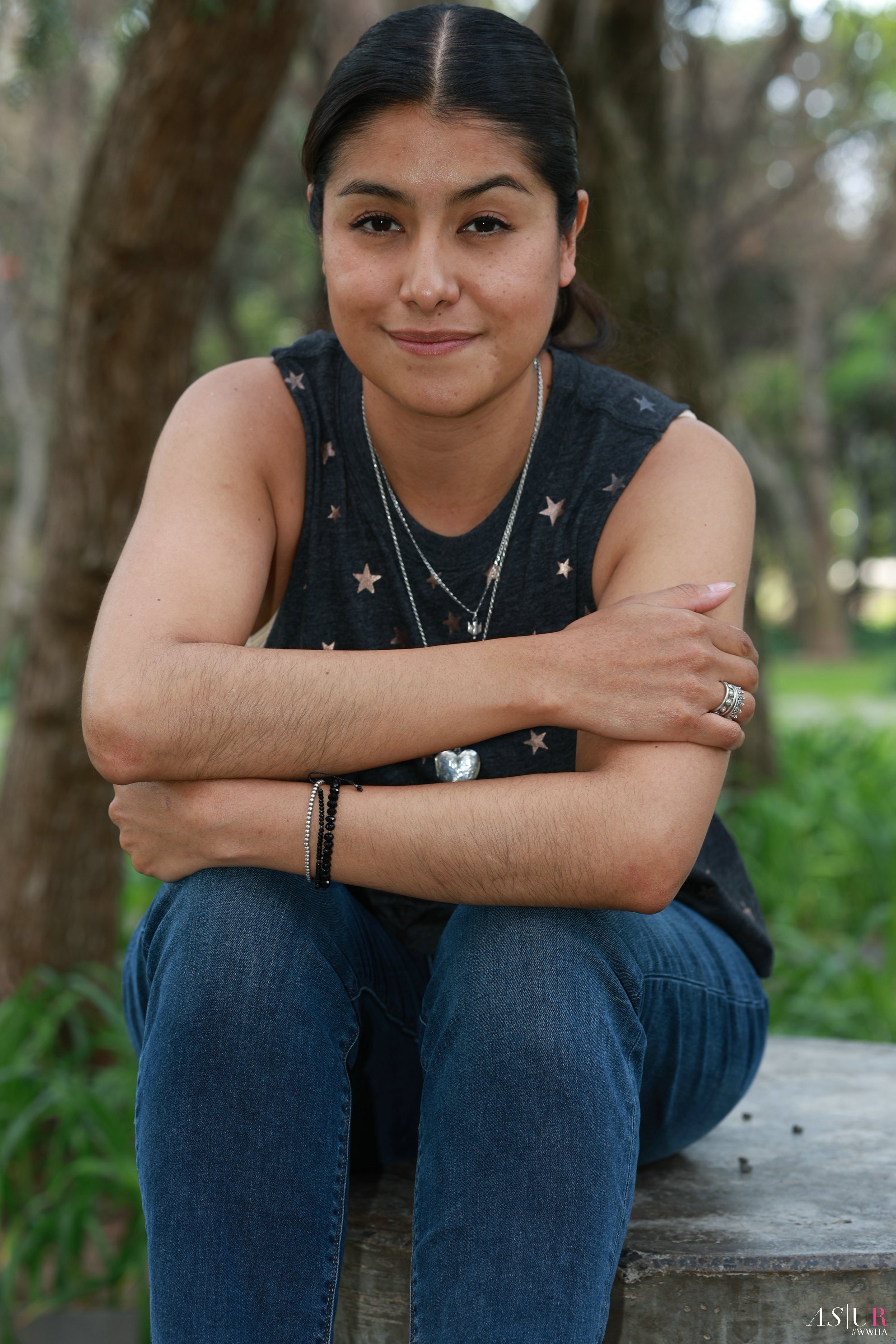Fabiola (English)
PROJECT WWHA: In what different ways has the conversation about arm hair come up in your life?
FABIOLA: Since kindergarten, children were very cruel and called me “hairy.”
High school was the worst time; I used to shave my arms, and once my dad told me that my hair looked bad when I shaved and grew back.
Nowadays, some students mention my body hair to me, and small children have told me that I have “man’s hair.”
A couple of years ago, I had a positive conversation with a very elderly woman I was sitting next to on public transportation. She told me my arms were beautiful and said she would have loved to have arms like mine, but she developed a skin condition that made her highly sensitive to the sun and caused her to lose her hair.
The last and most eye-opening experience was last year during Day of the Dead season. I was doing Catrina makeup on some models from other countries at an event held on a golf course. One of them told me with admiration—not in a negative way—that I had a lot of hair. This made me realize that they can’t afford to grow body hair because of the stereotypes they have to meet for their work.
PROJECT WWHA: When did you first remember noticing your own arm or body hair?
FABIOLA: Since I was four or five years old, because I had a unibrow that my mom plucked with tweezers. It hurt a lot, but I was grateful because it helped me avoid being teased.
PROJECT WWHA: What emotions did you go through when you first noticed your own arm or body hair as a child?
FABIOLA: I felt a lot of shame and sadness because the other kids didn’t have it, and they associated body hair with men only.
PROJECT WWHA: Did any of those events remain a trauma for you?
FABIOLA: Not anymore, but the one that influenced me the most was my dad’s comment. He’s bald and has some hair on his arms, but not as much as I do. My mom actually has a lot of arm hair too, but she shaves it.
PROJECT WWHA: Were you afraid to show your hair in public?
FABIOLA: Yes, because people always look at it. It’s something that can’t go unnoticed — it’s thick, dark, and very long.
PROJECT WWHA: Did you dress specifically to hide it?
FABIOLA: Absolutely. I would always wear long sleeves to hide it.
PROJECT WWHA: Have you ever spoken negatively to yourself in the mirror because of how your body looks?
FABIOLA: Yes, many times. Now, almost never — I prefer to focus on my habits. What hurts me more is seeing the wounds on my chest from my psoriasis, which is very uncomfortable and has no cure.
PROJECT WWHA: Have you ever removed hair from your arm or body?
FABIOLA: Yes, when I was a teenager and up until seven years ago. Nowadays, I still shave my leg hair during the hot season — I haven’t yet decided to take that step and let it grow.
PROJECT WWHA: What was it like after the first time you removed it?
FABIOLA: It was very uncomfortable because it itched terribly as it grew back, and really painful — later I used an epilator that pulls the hairs out, and I also tried cold wax, but that hurt a lot too.
PROJECT WWHA: How did you find Project WWHA?
FABIOLA: I’m in a film and photography casting group on Facebook, and I came across it by chance. I thought it was amazing — really interesting.
PROJECT WWHA: What did it mean to you to see other women with hair on their arms and bodies at Project WWHA?
FABIOLA: Wonderful, I feel that they are beautiful showing their most natural selves.
PROJECT WWHA: What tools do young women need to break free from oppressive social constructs of beauty?
FABIOLA: Create women’s discussion circles and develop new beauty rituals, such as a spa for body hair, and expressive word exercises dedicated lovingly to body hair. Rituals to raise awareness of natural beauty and sensitivity exercises. To think and reflect beyond what is commonly called feminism, and begin to embody the feminine. Having body hair makes us different, and we should cultivate love for it as a legacy from our ancestors.
PROJECT WWHA: What advice do you have for young women who have just noticed their arm or body hair at this point in their lives and feel different?
FABIOLA: They should be grateful to have body hair because some women wish they could grow it but can’t due to illness, and would give anything to have it. Even worse, some don’t have arms or legs to show it off.
Young women need to become aware that body hair is evidence of our wild side — the part that connects us to nature and makes us more sensitive. It’s okay to feel, and in fact, sensitivity is one of the most desirable qualities in a human being.
Women shouldn’t try to please others’ expectations, but instead strengthen their personal power so that negative comments don’t affect them. Body hair is a gift — a valuable legacy from our wildest ancestors: our animal brothers.

















